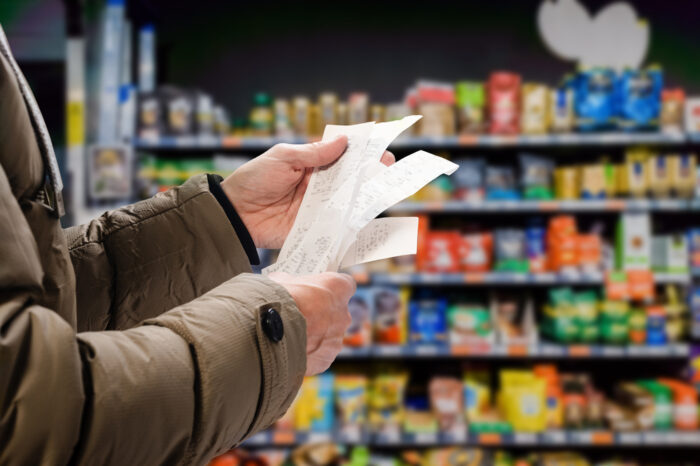The Competition and Markets Authority (CMA) has set out its latest findings in its ongoing review of the groceries sector – and has announced a probe into ‘loyalty pricing’.
The move follows an initial assessment that identified 10 product categories, including milk, baked beans and baby formula, for further analysis in a second phase of work.
Price dynamics
Food price inflation continues to be at historically high levels, despite falling to 9.7% in October 2023.
The CMA acknowledged that high inflation in the grocery sector has been driven largely by rising input costs, but it also found that retailers are hiking the cost of some branded products, increasing their unit profitability.
The watchdog noted that own label products often provide cheaper alternatives with suppliers of these products earning lower profit margins.
Loyalty pricing
With the rise in some supermarkets making cheaper prices only available for loyalty card members, such as Tesco Clubcard and Sainsbury’s Nectar, the CMA plans to begin a review of the use of loyalty scheme pricing by supermarkets in early 2024.
The CMA’s work will consider how the growth in loyalty scheme pricing is affecting consumers and competition in the groceries sector.
Sarah Cardell, chief executive of the CMA, said: “We have seen an increase in the use of loyalty scheme pricing by supermarkets, which means that price promotions are only available to people who sign up for loyalty cards. This raises a number of questions about the impact of loyalty scheme pricing on consumers and competition and the CMA will launch a review in January 2024.”
Baby formula
The CMA noted that baby formula is a product category where different dynamics seem to apply. The prices for baby formula in the UK have risen by 25% over the past two years.
Similar to other products the CMA examined, evidence suggests that branded suppliers of baby formula have also increased their prices by more than their input costs.
But unlike other products examined, there is little evidence of parents switching to cheaper branded options as prices have risen and very limited availability of own-brand alternatives.
Regulation ensures that all baby formula products, including cheaper options, provide all the nutrients a healthy baby needs. Despite this, the CMA is concerned that parents may not always have the right information, at the right time, to make effective choices. It is also concerned that suppliers may not have the right incentives to offer infant formula at competitive prices.
Danni Hewson, AJ Bell head of financial analysis, said: “Shoppers are unlikely to be surprised by the competition watchdog’s findings. Anyone who has wheeled a trolley around a supermarket over the past couple of years will have noticed the growing gulf between the prices of branded goods and own label alternatives.
“Whilst food manufacturers have consistently argued that they have not been profiteering and in fact have absorbed some of the price increases that would otherwise have hit their shoppers even harder, the CMA hasn’t been convinced.
“It’s found evidence that ‘unit profitability’ has increased on goods from mayonnaise to baked beans, a strategy it says has contributed to the food inflation that has hurt so many households.
“Unsurprisingly it found that shoppers have made the switch in their droves, trading down from brands they would normally pull from shelves without a second thought and forming new habits that could cost producers dearly in the long run.”





